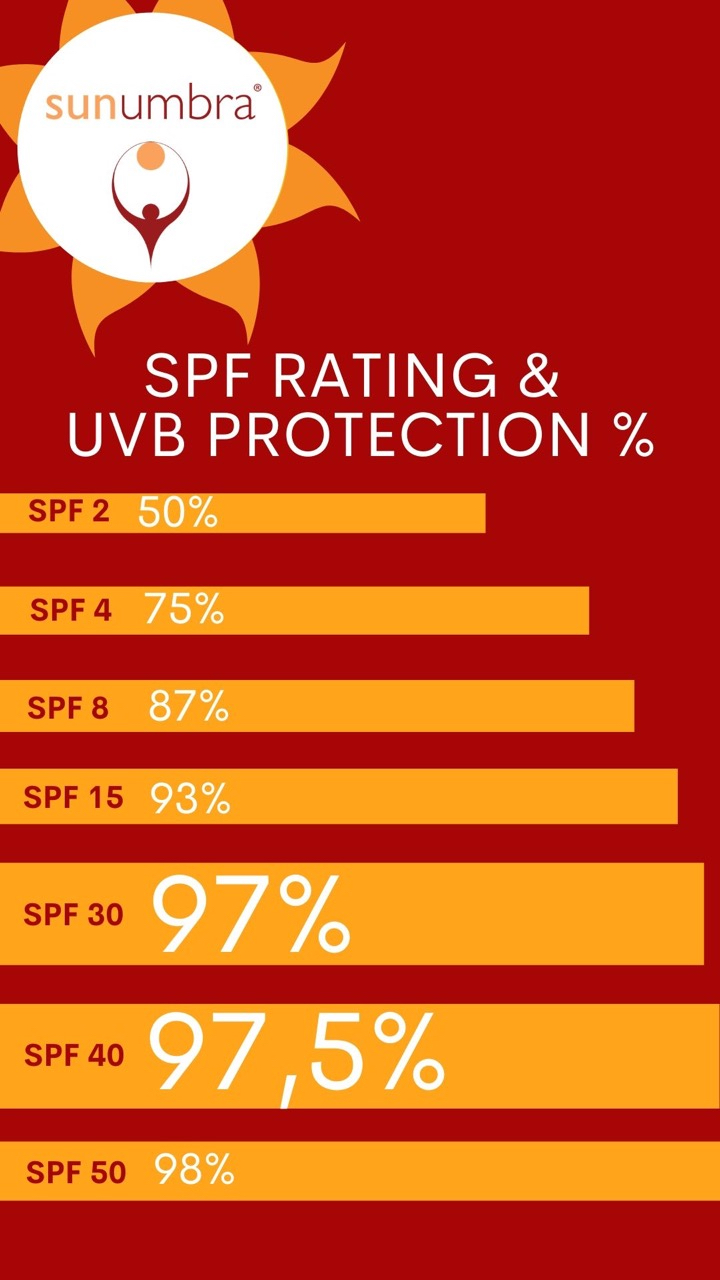SPF sunscreen
SPF sunscreen is what many people think of as a description for a sunscreen, where SPF is the only important aspect of a sunscreen.
Although it is an important part in protecting millions of people around the world from the damaging effects of the sun's ultraviolet rays, there is much more to a sunscreen than just its SPF rating.
SPF rated sunscreen is a product that works to absorb harmful UVB rays and neutralize its effects before it can penetrate the skin and cause everything from sunburn to skin cancer.
SPF ratings vary upon the type of sunscreen product. The most commonly used by the general public is a SPF 15. For individuals with fair skin and those who tend to burn easily, a higher form of SPF is needed, at least a rating of 30 or 40. As the SPF increases, the protection provided increases at a smaller proportion. You will notice from the chart, that the difference between SPF40 and SPF50 is a mere 0,5 %. In fact, SPF100 does not provide 100% protection. This illustrates how many people are fooled into thinking that the higher the SPF sunscreen, the higher the protection provided. This is a false belief.
However, a SPF rating does make it more official to consumers exactly how much protection their sun care product is providing. It is the global standard accepted by the various legislative bodies around the world and as such has enabled consumers to believe in the quality of the product. Without this information, consumers could potentially be using a product that doesn't offer enough protection at all from the Ultraviolet B rays.
SPF sunscreen vs Broad spectrum
It must be noted that SPF measures UVB protection only and sunscreens are now required by legislation to have a balanced protection from UVA too. In other words, if the SPF is high, the UVA must also be high. There are various measurement standards across the globe for UVA, but generally they need to be labelled Broad Spectrum at the very least.
SPF for sunscreen is universal in that it serves the exact same purpose for adults as children, for dark skins as for pale skins, for sensitive skins as for robust skins.
However, knowing how your skin reacts to the sun will help you decide what SPF to choose. These factors all help to know:
- your skin type
- the type of activities you'll be getting into and where
- how long it takes for you or any member of your family's skin to burn.
All of these need to be taken into consideration in order to find the right SPF sunscreen.




